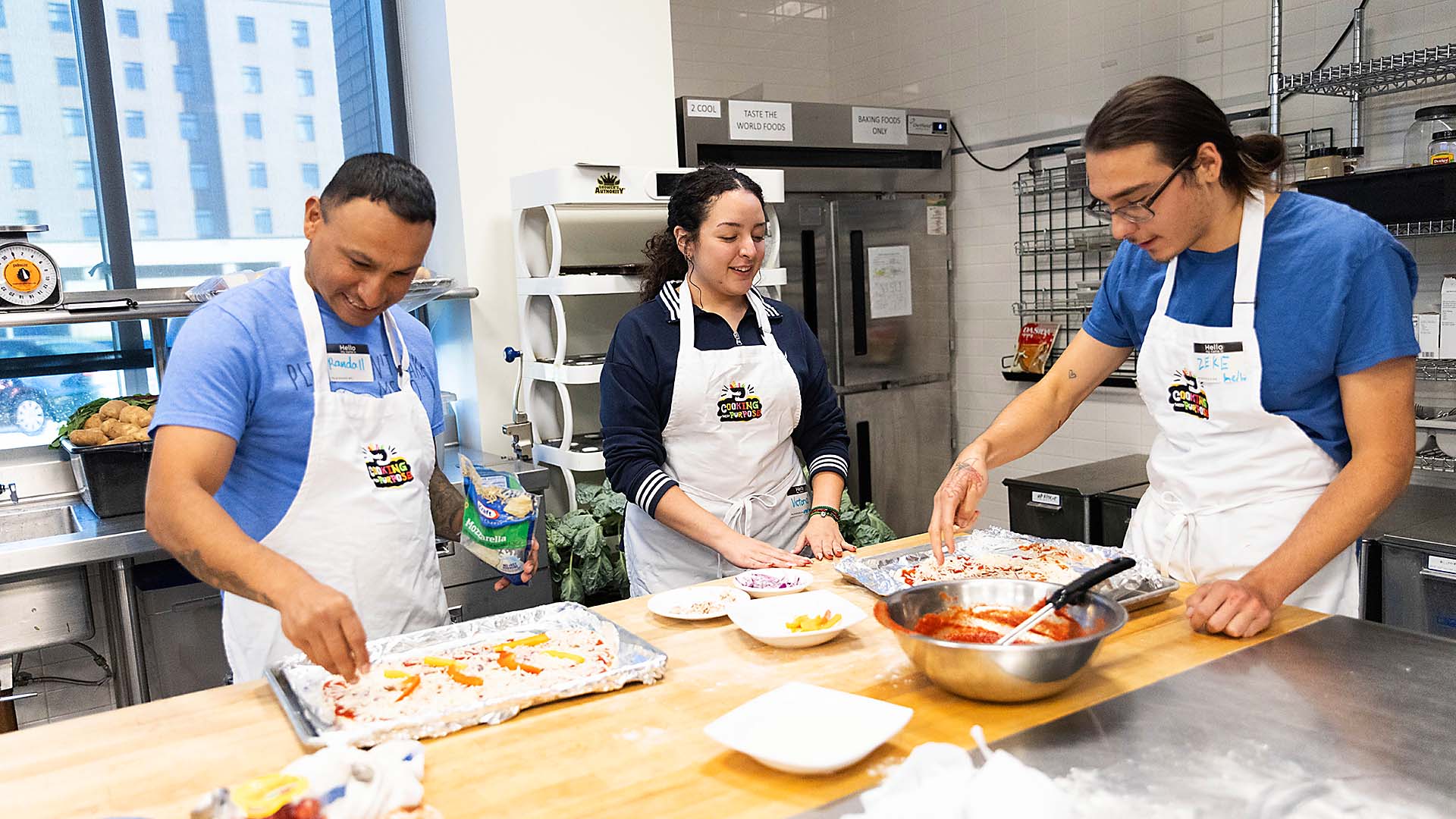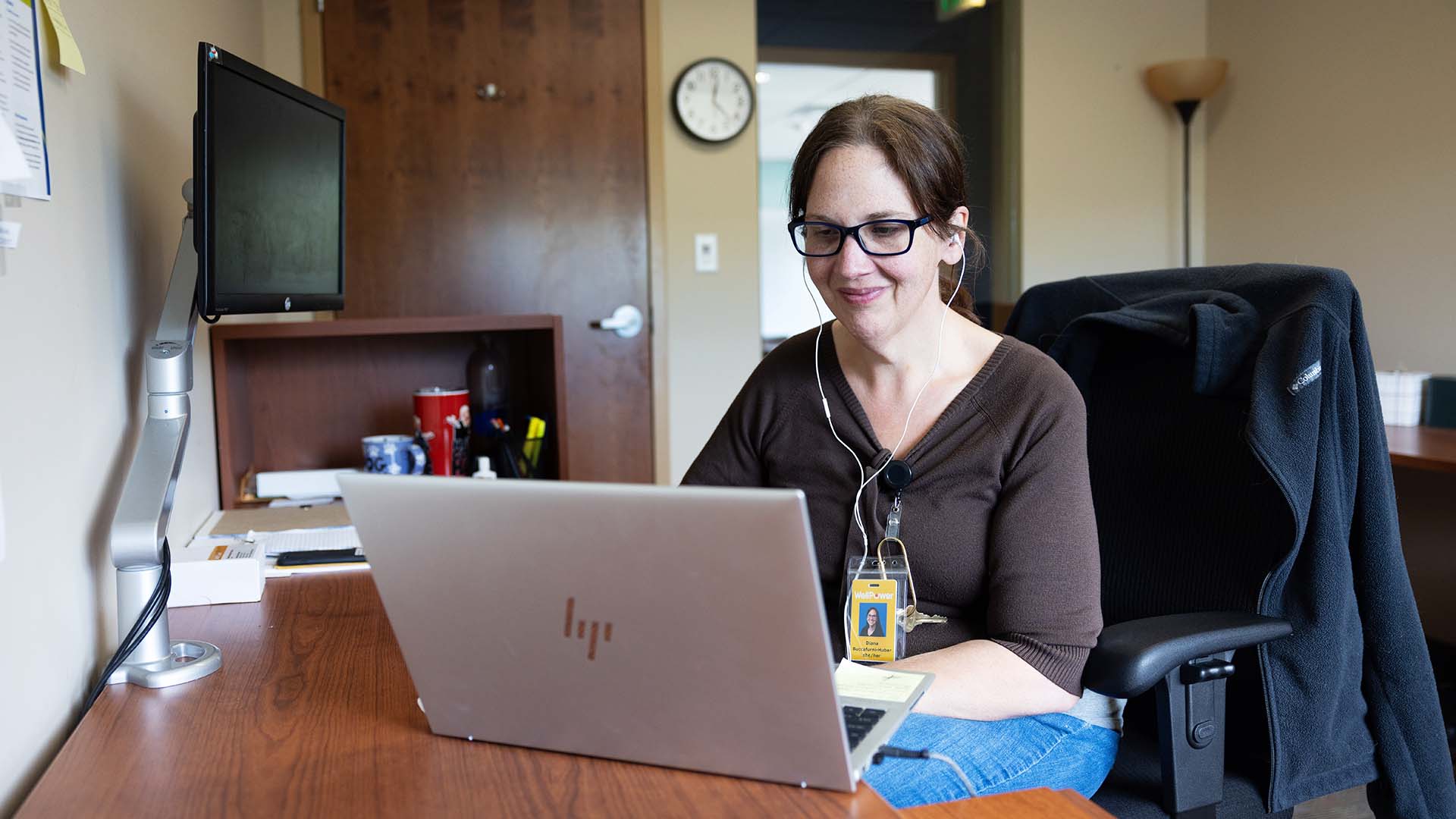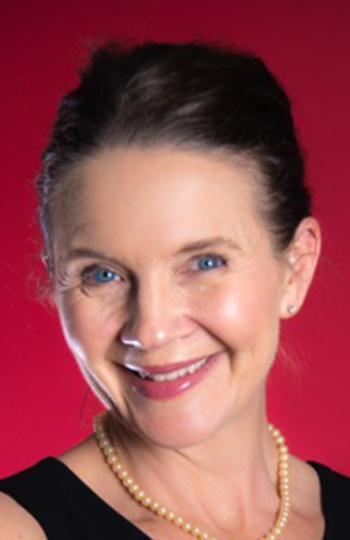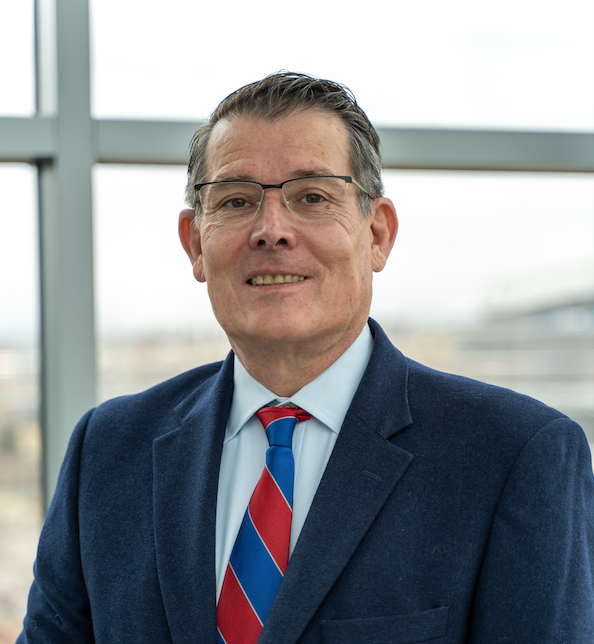Navigating the future of patient care
A $3 million grant will support a new generation of health workers transforming how underserved Colorado communities access services.
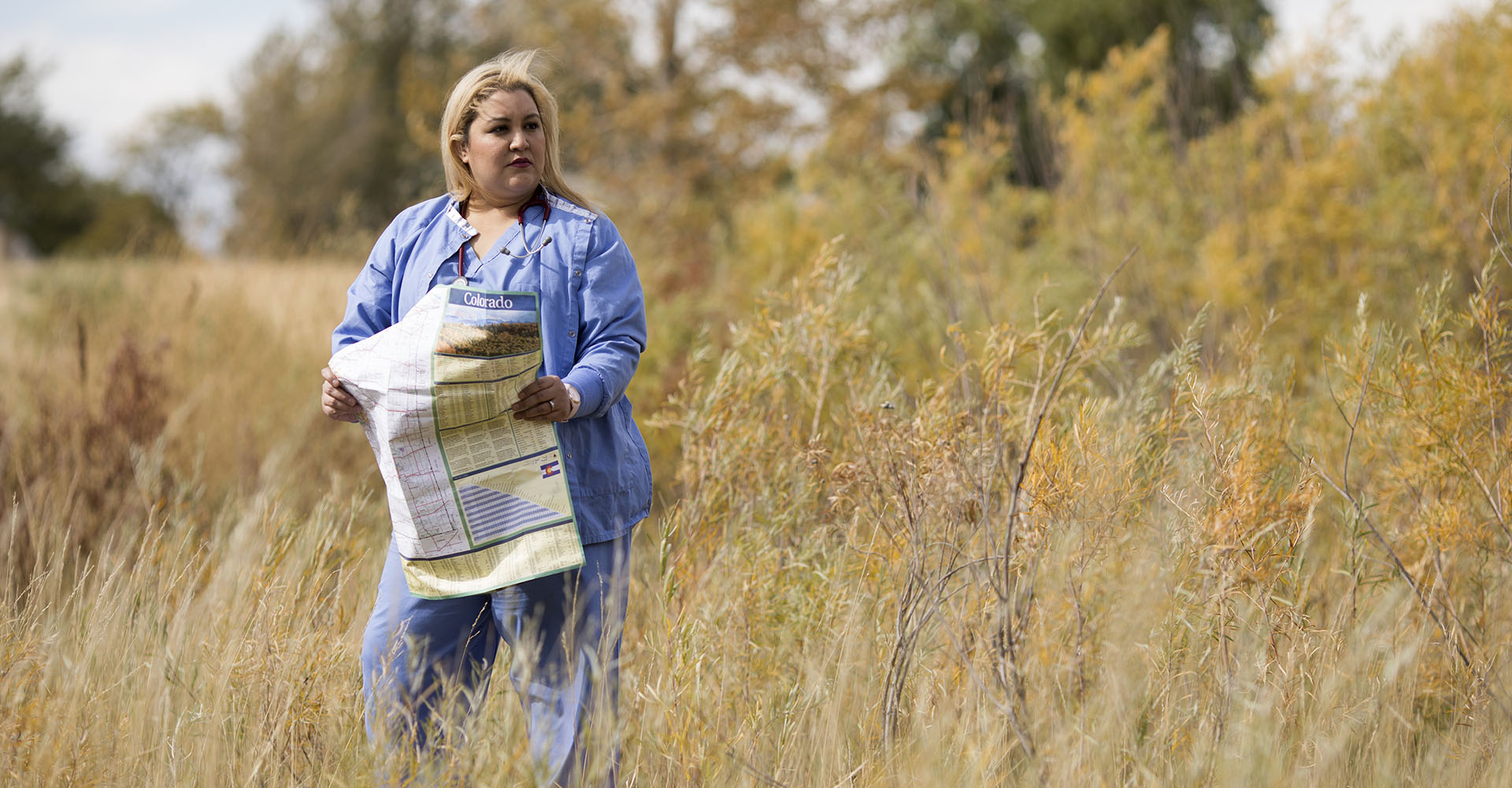
Community navigator. Patient advocate. Promotoras de salud.
By any name, the job of a health navigator is to connect individuals to the right care and social services at the right time. And in an increasingly complex health care landscape, the importance of having an accessible expert can’t be overstated – especially in underserved communities.
“Historically, we’ve done disparate populations a disservice in issues of health equity and because of this, people can harbor negative perceptions of accessing care,” said Erin Seedorf, doctor of public health and assistant professor in Metropolitan State University of Denver’s Department of Health Professions. “Health navigators may be the first person an individual is exposed to in the field, so it’s a vital role to remove the scariness and stigma. They represent their community and build trust from the ground-up.”
Health navigators – also known as promatoras in Latino communities – are one of many career options that can bridge these trust gaps, and educating the next generation of these important community health workers is the focus of MSU Denver’s forthcoming Health Careers Opportunity Program (HCOP) Academy. Supported by a $3.1 million grant from the U.S. Department of Health and Human Services’ Health Resources and Service Administration (HRSA), the academy will provide students from disadvantaged backgrounds scholarship support, job shadowing and clinical learning opportunities in the healthcare field.
HCOP will also introduce much-needed equity into a representative employment pipeline poised to fill one of the state’s fastest-growing job sectors. Though 30 percent of the state’s population are people of color, 85 percent of behavioral health positions and 98 percent of executive managers in the state’s health care system are white, according to a report by the nonprofit Colorado Health Trust. Meanwhile, employment in the “Health Care and Social Assistance” sector is projected to grow by 34 percent by 2027, according to the Colorado Department of Labor and Employment.
And with more than 78 percent of MSU Denver graduates starting their career in Colorado post-commencement, the school is a natural fit for the initiative.
“MSU Denver students already have that connection,” Seedorf said. “They’re already part of the communities they serve, so it’s a perfect opportunity to build an organic workforce.”

More opportunity than meets the eye
Modeled after Denver Health’s successful evidence-based Healthcare Interest Program (HIP), the University’s approach to HPOC will split students into two cohort-based structures: The National Ambassadors Program will serve those transferring into MSU Denver, while the Non-Traditional Program targets military veteran students and those older than 25.
Both programs focus on recruiting students from low-income, first-generation and underrepresented minority populations. Additional priorities include outreach to rural communities, the development of primary care clinics and addressing substance abuse issues – work the University has already broken ground on with a separate $3 million HRSA grant awarded in late 2017.
It’s an approach that is transforming both individuals and communities, opening doors into health care opportunities that many may not even realize were there.
“Doctors and dentists are certainly important, but for every doctor, there are 16 people to support a physician’s work – eight allied health professionals and eight non-medical support staff,” said Jennifer Capps, Ph.D., interim dean of MSU Denver’s College of Professional Studies. “We’re creating pathways for students to become nutritionists, social workers, athletic trainers, patient care technicians, health navigators and more.”
Emily Matuszewicz, D.C., interim director of the University’s newly formed Health Institute, also noted the chance to connect students with opportunities that may not even be on their radar in the first place.
“We realize students just come in and have one path in mind,” she said. “But we’re using design thinking to help them build out multiple options to prototype potential avenues through study, volunteering, research and shadowing.”
Further fortifying the pipeline between classroom, community and employment opportunities is MSU Denver’s partnership with Otero Junior College (OJC) in La Junta, Colo. Beginning in Fall 2019, OJC student’s completing a Health Navigator Associate of Applied Science can take advantage of a pathway into a four-year degree – something that addresses the field’s increasing need for a baccalaureate foundation, Seedorf said.
“Our partnership with Otero really fits perfectly – many coming in through this pathway could apply and gain access to this capacity-building opportunity we’ve got,” Seedorf added. “And the students we’ll be connecting with highlight the mission of HRSA grant and MSU Denver – it’s really a win-win all the way around.”
Matuszewicz echoed this sentiment, noting how strategic alliances similar to that developed by MSU Denver and OJC pave the way for additional opportunities amongst like-minded groups.
“We’re building something that’s going to benefit the workforce, students and our communities,” Seedorf said. “There’s a lot of momentum – this is the beginning of something big.”

“You can do this”Alma Ochoa had reached a career crossroads in her journey into the medical field. “I knew it was going to be really hard and wasn’t sure it was the right option,” she said. “But the folks like (Scott) from CESA and Ally Garcia from TRIO Student Support Services were really supportive, saying ‘You can do this, keep going, keep pushing.’” That individualized connection is paying off for the 2018 graduate with a double-major in biology and Spanish. Currently a laboratory research assistant in the Department of Chemistry, Ochoa plans to parlay the applied research she’s also gained as a HIP participant into graduate study next year. With the road ahead looking good, she traced her success back to starting with a solid foundation of support. “It’s really hard to get into the health care field when you don’t know anyone, but thanks to programs like TRIO and HIP, I got plugged into every resource I needed, from tutoring to research and more. “Every time, they were always there for me – it was really helpful.” Helping those who need it mostAs a patient care navigator with Metro Caring Provider Network, Attouah Nda-Koffi is at the intersection of community transformation, facilitating individually tailored resources to address issues such as food insecurity, transportation and housing. The 2014 nutrition graduate is also an example of applied connection, crediting a volunteer stint with other MSU Denver graduates at a 9News Health Fair for opening the door to a career’s calling. “Through that opportunity I met so many different people from different backgrounds,” Nda-Koffi said. “There were immigrants, undocumented folks, minority populations; I saw there was a need to help people who otherwise might not get the help they need.” That led to eventual graduate study in public health and landing as a patient care navigator, at the nexus of individualized advocacy, serving both person and community. “I knew there was something more I can do,” Nda-Koffi said. “I want to help people who need it the most.”
|
|
Seeing themselves doing the work
Paralleling the concierge-like approach of health navigators, HCOP will supplement fundamental academic elements (books-to-bedside lectures, clinical shadowing, professional mentoring) with the support infrastructure to ensure every cohort member is set up for success.
This includes elements such as intrusive advising, financial literacy and other wraparound services to empower individuals by matching them with professionals who share lived experiences – a model already with proven success on campus.
“Both in health care and the classroom, it’s important to connect students with leaders who share their visible and invisible identities; it challenges the stereotypes of what someone can and can’t do,” said Brandi Scott, associate dean of the Center for Equity and Student Achievement (CESA) at MSU Denver.
CESA delivers customized support to first-generation populations, those at 150 percent below the poverty line and students with disabilities, among others. And with a persistence rate of 93 percent for participants, it’s a testament to ensuring individuals are connected to the right resources at the right time.
This also means providing exposure to health professions as a viable career path. Scott noted a recent trip to University of Colorado Anschutz Medical Campus, where students connected with medical professionals and were able to try their hand at suturing by practicing on bananas.
“CESA is a centralized resource; we build trust, so students come to us to get connected to these opportunities,” Scott said. “When you’re practicing how to tie a suture that first time, you can then see yourself actually doing it full-time.”
It’s a success model that’s clearly works – and one the HCOP plans to scale as well.
“Our students will be wrapped in support so they can enter the field engaged and armed with information to be successful from day one on the job,” said Capps.
This project is supported by the Health Resources and Services Administration (HRSA) of the U.S. Department of Health and Human Services (HHS) under grant number D18HP32122 and title “Health Career Opportunities Program” for initial award amount of $617,496 and recommended future support of $2,464,010 annualized over five total years. This information or content and conclusions are those of the author and should not be construed as the official position or policy of, nor should any endorsements be inferred by HRSA, HHS or the U.S. Government.



